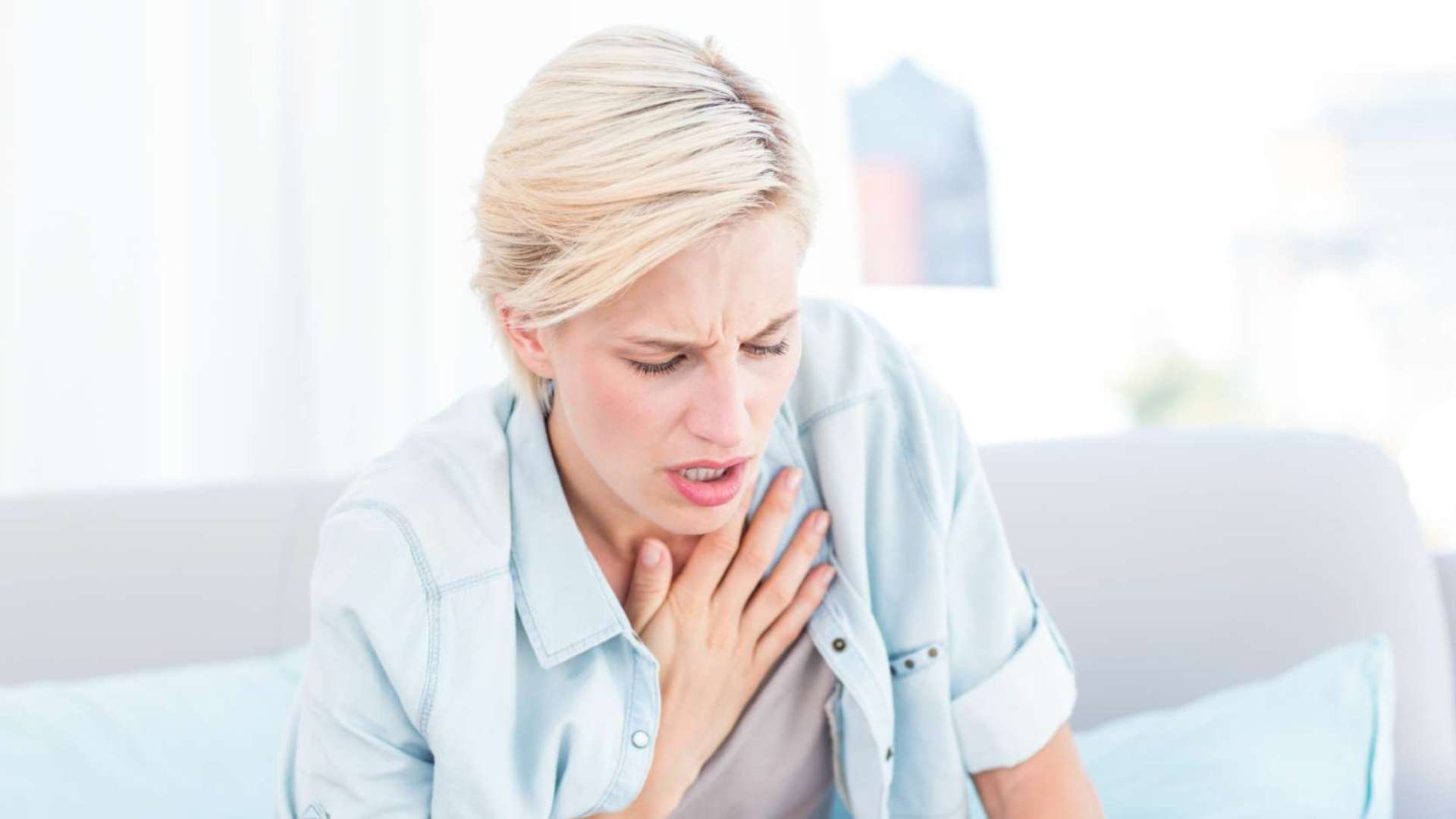Angina is a temporary chest discomfort or pain that usually happens during physical activity or extreme emotion and goes away after a few minutes of rest. The pain or discomfort associated with angina usually feels tight, gripping or squeezing, and can vary from mild to severe.
You usually feel angina in the centre of your chest, but it may spread to either or both of your shoulders, your back, neck, jaw or arm.
You can even feel it in your hands. Sometimes you feel angina in the other areas of your body without feeling it in your chest. Many people do not even feel pain – just an unpleasant sensation or discomfort in their chest.
You may also experience angina as shortness of breath, rather than pain. We will get to angina medicines in a bit but first let us make the distinction between angina and a heart attack.
Is Angina the same as a Heart Attack?
Angina is not the same as a heart attack. Angina is associated with only a temporary reduction in your heart’s blood supply while a heart attack is caused by a complete loss of blood flow to part of your heart muscle, generally due to a blood clot suddenly and completely blocking an already narrowed artery carrying blood to the heart.
What causes Angina?
Angina is caused when the arteries that supply blood to your heart muscle become clogged with fatty material called ‘plaque’. Plaque slowly builds up on the inner wall of the arteries, causing them to become narrow. If your arteries become too narrow, the blood supply to your heart muscle is reduced.
Angina occurs when your heart has to work harder than usual, such as during physical activity or extreme emotion, but it can’t get enough blood to meet its needs because of the reduced blood supply. Angina does not happen all of the time because the blood supply to your heart muscle, although reduced, is usually able to keep up with your heart’s demands.
How do you know if you have Angina?
Talk to your doctor to find out if you have angina. Your doctor will ask you about your symptoms, if you smoke, what you eat, how much physical activity you do and your family’s medical history.
Your doctor will measure your blood pressure and weight, listen to your heart and chest, and order blood tests to measure your cholesterol and glucose levels. You may have some other tests too, including an ECG (electrocardiogram), a chest X-ray and an exercise stress test.
You may also be referred to another doctor to have a coronary angiogram – a procedure involving an X-ray of your arteries carrying blood to the heart – to see if they are narrowed or blocked. If you have angina, this test will also help your doctor to decide the best treatment for you.
What to do when you have Angina?
- As soon as you have an episode of angina, immediately stop and rest.
- If rest alone does not bring rapid or effective relief, take a dose of your angina medicine. Wait 5 minutes. Make sure that you are sitting or lying down before using your spray or tablet, because it can make you feel dizzy. It is best to find the smallest dose that usually works for you (e.g. a full, a half or even a quarter of a tablet).
– Spray: one spray under the tongue will relieve angina quickly in most people.
– Tablets: place the tablet under your tongue – do not swallow it. When your angina symptoms stop, spit out what is left of the tablet. - If the angina is not relieved within 5 minutes, take another dose of your angina medicine. Wait another 5 minutes.
- If the angina:
• is not completely relieved within 10 minutes or
• is severe or
• gets worse quickly
Call Triple Zero (000)* now! Ask for an ambulance. Don’t hang up. Wait for advice from the operator.
If you are having a heart attack, getting to hospital quickly can reduce the damage to your heart and increase your chance of survival. Don’t ignore the warning signs! Get help fast. Every minute counts. It is always better to go to hospital and be told it’s not a heart attack than to stay at home until it is too late.
How is Angina Treated?
Angina can be treated and managed with medicines and surgery, and by making healthier lifestyle choices. Work closely with your doctor to find the best treatment for you. Agree on a suitable management plan and follow it to help to reduce your angina symptoms and your risk of more heart problems.
Medicines
Taking medicines as prescribed by your doctor can help to prevent, treat and manage angina and your risk of further heart problems. These medicines work in different ways and you may need to use a combination of them. However, taking more than one medicine can be confusing and difficult, so talk to your doctor or pharmacist if you have any questions.
Angina Medicines
Angina (or ‘nitrate’) medicines work by making the blood vessels in your body bigger (‘dilated’) to increase blood flow to your heart. There are two types of nitrate medicines. Short-acting nitrate medicines are absorbed through the lining of your mouth into your bloodstream to relieve angina symptoms within a few minutes.
This is why they are called ’short-acting’. Short-acting nitrate medicines can be a spray or a tablet that goes under your tongue. The most common is glyceryl trinitrate (sometimes called ‘GTN’). If your doctor prescribes this type of nitrate medicine, make sure that you carry it with you all the time.
Long-acting nitrate medicines are different from short-acting nitrate medicines because they are used to reduce angina symptoms over time rather than relieve an angina episode within a few minutes.
Long-acting nitrate medicines often come as tablets that you swallow (not put under your tongue like short-acting nitrate medicines). You may need to take several doses a day to get the best effect, but always follow your doctor’s directions.
This type of nitrate also comes as patches that let the medicine absorb through your skin gradually. Patches should only be worn for 10–12 hours every day (during the day or night, whenever you are most likely to get angina), so your body doesn’t build up resistance to it.
You can put the patches anywhere on your body, but change their position regularly so that you don’t get a skin irritation.





